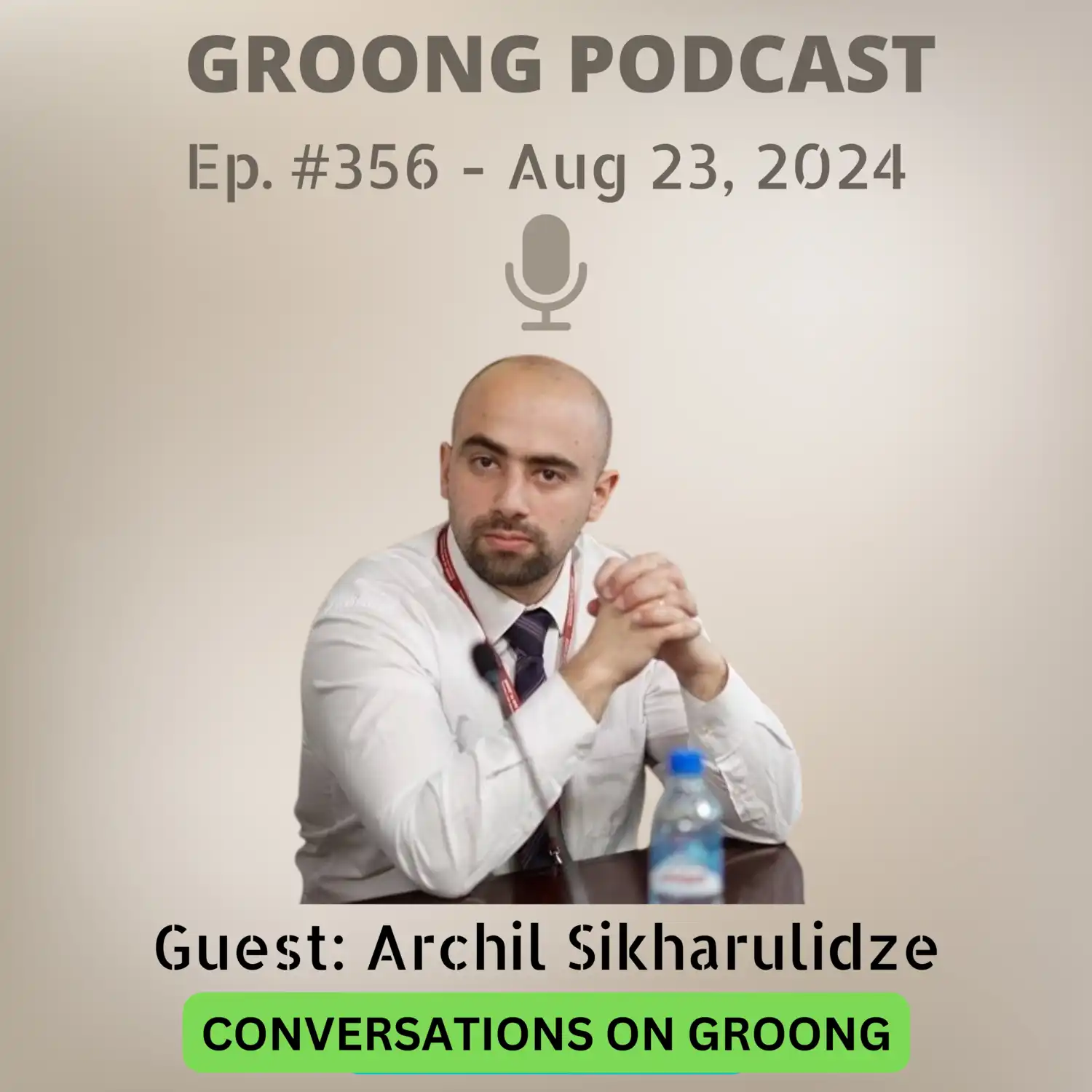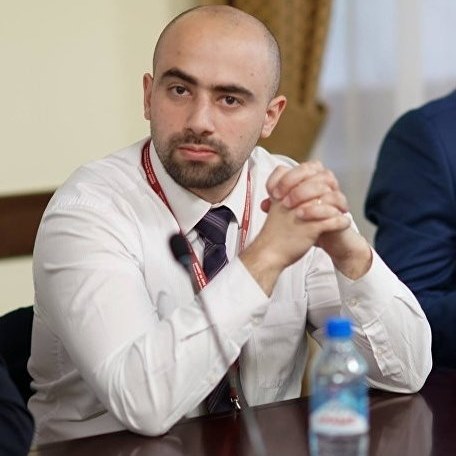
Groong Links:
Guest:
Topics:
- Georgian Politics, Amidst Global Currents
- Attacks Against the Georgian Church
- Thoughts on Russian and Georgian Relations
Episode 356 | Recorded: Aug 21, 2024
Show Notes
Georgian Elections in 2024
Georgian Politics Amidst Global Currents
Georgia is holding parliamentary elections in October 2024 and the internal political rhetoric is heating up.
We know that there is a big rift between the current Georgian Dream ruling party and the West to the point where Georgia’s EU candidacy has been paused and a number of sanctions have been imposed against the ruling party leadership after the recent law “On Transparency of Foreign Influence”, more commonly known as the “Foreign Agent Law”, among other anti-liberal legislative changes introduced in the country.
Amidst high polling numbers, Georgian Dream appears to have doubled-down on its position of independence from the collective west. Georgian Dream has even raised the specter of outlawing the opposition United National Movement (UNM) party.
UNM To Be Banned?
Let’s start with this fiery statement published on the official Georgian Dream Facebook page, which states that if GD achieves constitutional majority, then they will initiate a “legal process” as a result of which the UNM and its satellites will be declared unconstitutional.
Questions:
- Can we double-click on this? Why does GD perceive that UNM should be declared unconstitutional?
- How much are they being funded from the outside?
- What is the specific legal mechanism through which UNM will be declared outside the constitution
- The statement might seem pretty divisive. Is GD concerned about building solidarity?
- Doesn’t it make sense to be less polarized ahead of elections?
- What has been the reaction to this statement?
- Do voters demand such strong statements ahead of elections?
- Can we say that this is the GD going “all in”? Is there any coming back from this, in terms of restoration of relations with the west?
- Does this mean that the only recourse for the west is to sponsor a revolution?
The latest polls show support for GD at 59.3,while the leading opposition party UNM would get 13.1%. Even if all the opposition parties voted in unity, they would theoretically get 40%.
Questions:
- Is the GORBI poll reliable? How much can we trust these numbers?
- What major parties are running for leadership, and what ideologies and political views do they represent?
- Is 59.3% sufficient for GD to get a constitutional majority?
- In terms of tactics and strategy, what has been the key to success for GD?
- Has their rating increased when they’ve taken the opposition head on?
- Are voters concerned more about internal or external issues?
- Do they rely heavily on the media?
- We have been told that almost all media is foreign funded and supports the opposition)
The upcoming parliamentary elections in October are seen as pivotal in determining the future direction of Georgia, whether the country will reject the conservative policies of Georgian Dream and punish the party in the polls or whether the voters will approve of their policies and therefore put Georgia’s EU relations on ice for the foreseeable future.
Questions:
- Parties and candidates are always saying that the current elections are the most important ever, that the stakes have never been higher, etc. How important are these elections in Georgia, and why?
- The West frequently accuses Georgia of serving Russian interests. How true is that?
- Is Turkey a player in Georgian politics?
- Do you have any predictions? What are the main scenarios that could unfold?
- Some analysts see the upcoming polls in Georgia as pivotal for Armenia as well. Would you agree? Why are these elections in Georgia important for Armenia?
Mikheil Saakashvili and His Role in 2008
One of the topics of the election “debate” is the level of responsibility of Mikheil Saakashvili, the former leader who founded UNM and is currently in jail, in the 2008 war with Georgia. GD has accused Saakashvili of starting the war and has called for a “legal process” to investigate.
Meanwhile UNM and supporters inside and outside the country have claimed that Saakashvili is a political prisoner. They have also complained and blamed the authorities for his visible frailty.
NOTE:
- ECHR has determined that he is not.
Questions:
- How valid is Saakashvili’s imprisonment and trial in your opinion?
- What are the charges against him?
- How far along is the trial process?
- What are the conditions that he’s being held under?
Attacks Against Georgian Orthodox Church
Earlier this spring, we read an allegation from the Georgian government (Kobakhidze) which criticizes NGOs that attack the Georgian Orthodox Church.
This is interesting to us because in Armenia currently, the main mantle of the opposition is being carried by a member of the Armenian Apostolic Church, Archbishop Bagrat Galstanyan. The top leadership of the church has stated that the movement is the Archbishop’s personal initiative, but at the same time the Catholicos has “blessed” the Archbishop and obviously is accommodative of the process.
Questions:
- What is the exact nature of these attacks that Kobakhidze was criticizing?
- We haven’t been able to find much published in English.
- How do Georgians see the separation of Church and State in their country?
- How religious are Georgian people in your opinion?
- How much influence do religious leaders have in politics?
Book on Russian and Georgian relations
Recently, we followed with interest your presentation of a new book («История взаимоотношений России и Грузии в X – первой половине XIX вв.»), that is a collaboration between Georgian and Russian scholars on the history of mutual relations between Georgia and Russia. What caught our eye about this presentation was that you mentioned that this book is the first such byproduct of true Russian-Georgian dialogue, “without a Western grant”.
Questions:
- Can you tell us more about this book, what was the impetus for starting it?
- How difficult is it to converge on a joint narrative?
- Would Georgians agree with what is written?
- How are differences handled in the book?
- Recently, Russia made a big stink because in an Armenian textbook, the authors had written that “Russia annexed Eastern Armenia”. How is the topic treated in Russia? Do you find that term, “annex”, problematic yourself?
- Do you think it is possible to have a general enough narrative to create a single book that would cover the relations between Armenia, Georgia, Azerbaijan and Russia, Iran, Turkey… all in a single book?
Wrap-up
That’s our show, we hope you found it useful. Please find us on Social Media and follow us everywhere you get your Armenian news, the links are in the show notes.
Thanks to Laura Osborn for the music on our podcasts. We’ll talk to you soon!
Guests

Archil Sikharulidze
Dr. Archil Sikharulidze is a founder of the Tbilisi-based research institute SIKHA foundation, in the Republic of Georgia. He holds masters degrees in International Relations from Tbilisi State University, and Public Administration from The Robert Gordon University in Scotland. Mr. Sikharulidze is focused on Russian and Islamic Studies. Additionally, political processes and international relations in Ukraine, the South Caucasus and Kazakhstan. He writes extensively for various local and international platforms such as OpenDemocracy, NewEasternEurope, CommonSpace.EU, RIAC, and Russia in Global Politics.
Hosts

Hovik Manucharyan
Hovik Manucharyan is an information security engineer who moved from Seattle to Armenia in 2022. He co-founded the ANN/Groong podcast in 2020 and has been a contributor to Groong News since the late 1990s.
Disclaimer: The views expressed by Hovik Manucharyan on the ANN/Groong podcast are his own and do not necessarily reflect the opinions of his employer or any other organization.

Asbed Bedrossian
Asbed Bedrossian is an IT professional, and for years oversaw the central IT enterprise infrastructure and services at USC. His decades of experience spanned across IT strategy, enterprise architecture, infrastructure, cybersecurity, enterprise applications, data center operations, high performance computing, ITSM, ITPM, and more.
Asbed founded the Armenian News Network Groong circa 1989/1990, and co-founded the ANN/Groong podcast in 2020.